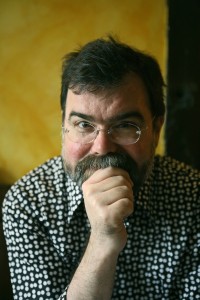 What do you look for in a long term project?
What do you look for in a long term project?
I expect a long-term project to convey a nuanced, multifaceted view of an idea or situation or person — whatever the topic is. The benefit of working on a single subject for a long time is that you gather insights and understanding over time, and your subjects become more comfortable with you as a photographer, and therefore they become more trusting and more real. That kind of honesty and deep understanding and appreciation is what I like about long-term projects. When such a project is successful, I feel as if I am able to “experience” the situation myself, through the eyes of someone who knows how to discover and tell a compelling story.
What would you like photographers to take into account when putting together a project?
Of course it depends on what kind of project we’re talking about. But if it is a visual narrative, the project should contain the basic elements of good story-telling: Start with an image that grabs your attention immediately. Then provide the big-picture context for the story as a whole — the setting and situation. Then let the story build, with details large and small, with elements of conflict and tension gathering, with personalities and situations. Show some kind of climax or the consequences of the building problem. Then finish with some kind of resolution. The images should stand on their own, and build as a sequence, and get richer in the minds of the viewers with each step of the story. Introductory text and captions are often really essential to conveying a story with the right degree of understanding.
Ultimately, what would you like to contribute to the photo industry?
I’m quite happy with my role of meeting and discovering great photographers from many cultures, and then sharing my discoveries on LensCulture with other people who are just as passionate about photography. I’f like to help talented people connect with opportunity. And I want people to find inspiration in the work of others.
What inspires you about photography?
I believe photography is the most universal language on the planet. It allows people to connect with each other and to communicate clearly all over the world — without regard for political borders, cultural barriers, or the vast differences of spoken and written languages. It’s a democratic medium — anyone can make a technically good picture these days with their mobile phone camera. What inspires me is when people can use that visual language with fluency to evoke emotion, explain a complex situation, or persuade people to care about something important.
What makes this competition an important opportunity for photographers around the world?
Photography competitions in general are good because they force you to edit and sequence your work into a finished project — and then that project gets viewed by experts on a jury who really know and care about photography. If even one of the jurors really likes the work, amazing things can happen for the photographer who entered the competition — even if they don’t win one of the big prizes, the exposure to influential people can be quite valuable. And for the winners, the worldwide recognition and exposure can help boost a career in photography very quickly.
What advice would you give to student, alumni and emerging photographers today?
Some simple advice is to make photographs daily, and to look at them carefully, analyze them and to get to know how to use the language of photography on a very personal level. Look at the work of other photographers. Take active parts in local and global photo communities. Immerse yourself in the world of photography so your work can excel and stand out from the crowd. It often helps to “print” you photographs and hang them on your own walls where you will see them repeatedly — that will help you learn what you like about your own work, as well as what you could do better next time. Having lots of working prints on your wall is much better than looking at them briefly on a computer screen.
Photography is the most universal language on the planet. And I believe it will continue to grow in importance as we all connect with each other — via the internet, smartphones and other ways — moment by moment, by sharing pictures from our lives and from our unique points of view.
